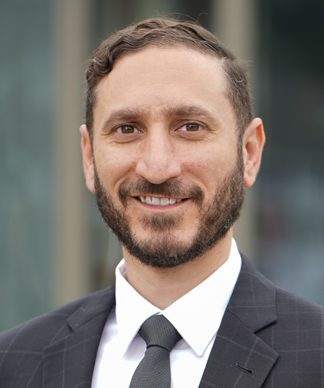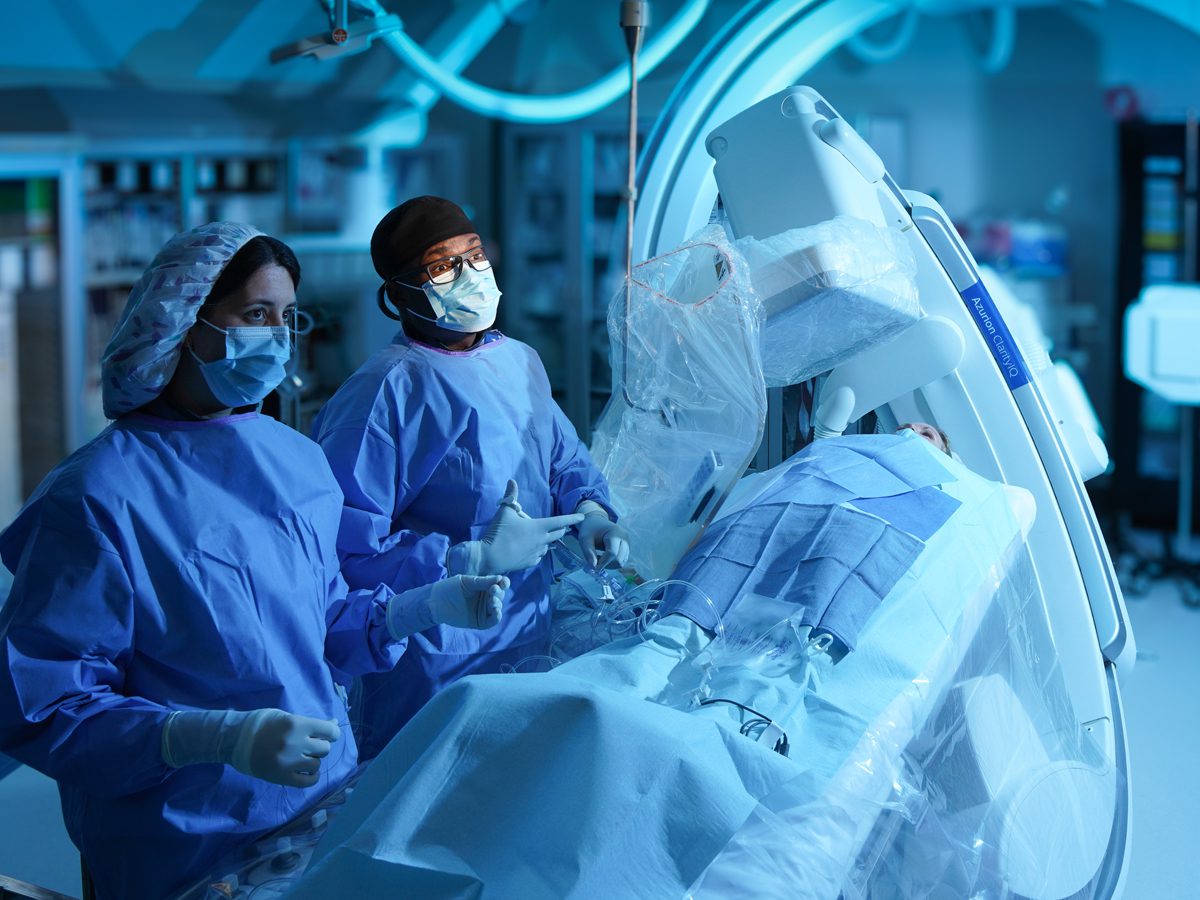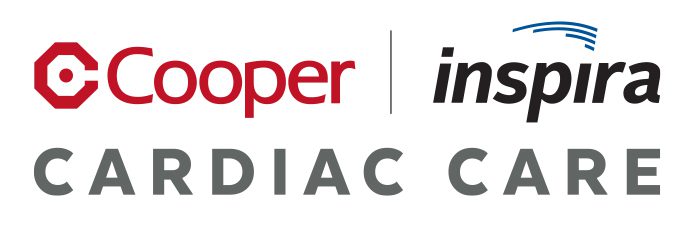Inspira Health: Advanced heart care, closer to home
“These programs save lives, lower costs, and most importantly, get patients to the right place, with the right team, at the right time.” –Ahmed Seliem, MD
The need for effective prevention, timely treatment and long-term recovery close to home has never been clearer: Every year, 800,000 people in the United States die from cardiovascular disease – one in every three deaths. That’s where Cooper and Inspira Cardiac Care come in.
At Cooper and Inspira, innovation and patient-centered care go hand in hand. Through a unique partnership that bridges a nationally recognized academic medical center and a trusted community health system, patients now have more and better access to a wide spectrum of cardiac care – all without leaving the region.
This expanded network means patients benefit from advanced diagnostic tools, one of New Jersey’s highest-volume cardiac surgery programs and a robust cardiac rehabilitation offering. Equally important, the partnership allows for seamless, coordinated care across locations.
Tackling Heart Failure

Ahmed Seliem, MD
In South Jersey, where advanced heart failure treatment once meant traveling to Philadelphia or beyond, this partnership created a nationally recognized program bringing lifesaving care close to home.
“Heart failure is the most underdiagnosed disease of the 21st century,” says Ahmed Seliem, MD, a member provider of Cooper and Inspira Cardiac Care. “Around 6 million Americans have heart disease, and a large portion have heart failure. It’s often overlooked, but it places a major burden on patients and the healthcare system.”
Unlike typical cardiology clinics, the Advanced Heart Failure Program at Cooper takes a comprehensive, multidisciplinary approach for managing heart failure. Patients, who may have suffered for years with symptoms like shortness of breath, fatigue, swelling and trouble sleeping – are finding effective treatment in the program.
“These are people who can’t walk to the mailbox or shop for groceries,” says Dr. Seliem, an advanced heart failure and interventional cardiologist. “Our goal as heart failure doctors is to give these patients their lives back.”
One of the program’s major strengths is its treatment of cardiogenic shock, a condition where the heart function rapidly deteriorates. With seamless coordination and helicopter transport, patients from as far as Salem County can reach Cooper in under 45 minutes. Once there, temporary mechanical pumps stabilize the heart, and since January, a permanent Left Ventricular Assist Device (LVAD) has been available.
The team operates on what is called a hub-and-spoke model to streamline care. Without such a partnership, precious time can be lost, with patients bouncing between several facilities that can’t provide the level of care needed.
“With our model, within 10 minutes we know exactly where a patient should go and what resources are available,” explained Dr. Seliem.
Access remains a national challenge, with only one heart failure specialist per 5,000 patients, but this South Jersey program is helping close the gap.
“These programs save lives, lower costs, and most importantly, get patients to the right place, with the right team, at the right time,” says Dr. Seliem. “That can mean years of life with loved ones that they wouldn’t have had otherwise.”
Innovative Techniques
At Cooper and Inspira Cardiac Care, innovation is more than a buzzword – it’s transforming outcomes for patients with life-threatening heart conditions. Using advanced techniques and cutting-edge technology, Cooper and Inspira cardiac specialists are restoring hope to those facing cardiogenic shock and peripheral artery disease (PAD).
“When a patient arrives in cardiogenic shock, their heart isn’t pumping enough blood, and their blood pressure is dangerously low – often during an active heart attack,” says Jean Gué, MD, a member provider of Cooper and Inspira Cardiac Care.
Dr. Gué, a structural and interventional cardiologist, specializes in minimally invasive procedures that improve heart function and restore blood flow. For some patients experiencing cardiogenic shock, the team has to stabilize the person first by inserting a small mechanical pump, known as the Impella Device, directly into the heart. This device decompresses the left ventricle, which relieves pressure and improves blood flow.
“Without it [Impella], patients can deteriorate quickly,” says Dr. Gué. “With the Impella in place, we can stabilize them first, then move forward safely with more complex interventions.”
More advanced procedures are performed at Cooper, with initial consultation and testing and post-procedure visits performed locally. These procedures include insertion of a Watchman or Amulet Amplatzer device for atrial fibrillation; minimally invasive valve interventions for narrowing of the aortic valve; and repairing leaky valves with the MitralClip or TriClip device.
For patients with PAD, the innovation continues. Many patients are unaware they have reduced blood flow to their limbs until a serious complication like amputation is looming. Early screening is key, but when severe blockages are found, the Cooper and Inspira team uses a bold retrograde approach, accessing the artery through the foot and working upward.
“This lets us restore blood flow from the bottom up, often saving limbs that might otherwise be lost,” says Dr. Gué. “It’s a game-changer.”
Seamless coordination between Cooper and Inspira allows this kind of responsive care. At Inspira Medical Center Mullica Hill, devices like the Impella can be placed immediately. For more advanced procedures like the Watchman for atrial fibrillation or minimally invasive mitral valve repairs, patients receive initial testing locally, travel to Cooper for the procedure and then return to Inspira for follow-up, generally with the same cardiologist.
“We keep care close to home, with continuity throughout,” says Dr. Gué. “Our approach is proactive, smart and focused on getting patients safely through crisis and on the road to recovery.”
Mending your heart after a cardiac event
With five locations, Cooper and Inspira’s Cardiac Rehabilitation Program (cardiac rehab) stands out for both its accessibility and depth of care. Led by cardiologists and supported by clinical exercise physiologists, nurses, respiratory therapists and dietitians, the program offers an interdisciplinary model that adds significant value to patient outcomes.
“Patients who participate in cardiac rehab have a 47% lower risk of death and a 31% reduced risk of another heart attack or hospital readmission,” says Yvonne Lombardo-Brown, ACSM-CEP, EIM, Director, Cardiac Rehab Services.
Eligibility is broad – anyone who’s had a heart attack, cardiac surgery or stent placement likely qualifies. Once enrolled, patients discover cardiac rehab is far more than just time on the treadmill. It begins with a full assessment and typically includes 32 monitored sessions over three months, covering exercise, education and nutritional counseling.
“Our small group sessions follow an evidence-based exercise progression model,” Lombardo-Brown says. “We also educate patients about medications, cardiac risk factors, self-monitoring and how to safely exercise at home.”
Cardiac rehab also supports emotional recovery.
“It can significantly reduce depression, which is common after cardiac events,” she says. “Bypass patients often feel like they’ll never get their life back. This program helps them rebuild physically and emotionally.”
Patients often report dramatic improvements.
“Sometimes, just one month in, they tell us they feel better than they have in years,” she says.
Coverage for cardiac rehabilitation is rarely an issue – Medicare and most insurance plans cover it. Transportation assistance is available for those who need it.
Alexis’ Story
When a routine checkup revealed signs of a heart attack, Cooper and Inspira’s cardiac care team didn’t miss a beat. Click to view Alexis’ story.
 833-SJ-HEART
833-SJ-HEART
833-754-3278




